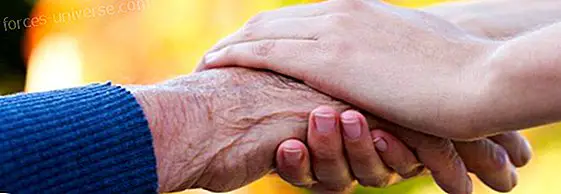Digital detoxification: are you addicted to the Internet and social networks?
- 2017

It has become appallingly obvious that our technology has exceeded our humanity. Albert Einstein
Do you need a digital detoxification? We live in an extraordinary time in the history of mankind. We are connected globally in an unimaginable way just a couple of decades ago. Not even the best science fiction novels predicted such a situation. But life in this digital age is far from ideal.
Our ability to maintain the balance between work and leisure has challenged us, since both are related to the same world of internet, the same static postures and the same screens in front of our eyes.
Why does this happen to us?
We are so obnubilated by the digital world that we have lost the ability to enjoy the things of the real world. The philosopher Enric Puig Puyet, in his book, The Great Addiction, tells us that the participatory internet, that is , social networks, seek our dependence since it is empty platforms that feed on our publications and therefore incite us that we are connected at all hours . They also subsist for our purchases and our money.
Contrary to popular belief, Puig Puyet argues that younger generations, those born with this technology, will have less difficulty dealing with digital technology.
We are those who live the emergence of mobile phones, the internet connection and everything that came with it that we are most trapped by it, until, in many cases, to the point of addiction.
Take, for example, the case of Ana, a 40-year-old housewife who confesses that she uses social networks for 4 or 5 hours a day. It is rare that 10 minutes pass without checking the mobile. Her husband is exasperated and comments that she is not really present. He also thinks he shares too many things and if they have an argument or an annoying situation with someone, he immediately says "please don't put that on Facebook." “Although I usually do it, ” says Ana. - “I interrupt any family event, whether it's dinner with my husband in a restaurant, or the children's birthday, to take pictures to post on the networks. Interacting with friends and strangers on social networks is an important part of my life. Social networks are fabulous, I'm sociable but I don't want to have to go out to socialize all the time. This is a way to connect with friends without any effort- ".

Another case is that of Carlos, a 20-year-old student, who acknowledges that he connects daily for up to 10 hours, and that time is running out so quickly that sometimes he even missed classes because he could not control it . Consider that despite the need to be on the Internet, this is not an addiction as harmful as smoking or even watching television, you use your brain with the Internet, you expand horizons, you learn.
The cases of Ana and Carlos are not isolated as they may seem. It is repeated more often than we imagine.
What are the causes that we often feel dominated by social networks?
- Facebook, Instagram, allow to have friends and followers in a very simple way, with just one click, and these friends make us spend excellent digital moments when we receive many like or comments to our publications.
- We have a quick gratification, as with any addiction, such as the shopping addict who is happy with a pair of new shoes for no more than two hours. We immediately get an answer to a question, advice for a problem or applause and congratulations when something goes well.
- Another cause of addiction to networks is to feel active, as in the case of Ana who thinks that without her popularity on social networks she would be a simple housewife. In this way he feels that he is in the world, that he participates in the conversations and also generates them, however banal they may be.
What are the symptoms that are giving you an alert signal?
-You alter your hours of eating and sleeping by being online.
-You are shy and have difficulties to socialize.
-You connect to the Internet every day, without missing one.
-You lose track of time when you are connected
-You take less and less to eat, or eat in front of the monitor. You consume junk foods, instead of eating, so you don't get up from the computer.
-You deny spending a lot of time on the Net.
-Other people complain that you spend a lot of time in front of the computer.
-You check your email every moment.
-You enter the Internet in secret, when there is no one else, and you feel more comfortable like that.
Digital detoxification can improve your health
Digital detoxification is called the fact of staying out of social networks, emails, use of tablets and other devices with internet access, to achieve moments of calm and disconnection of the infinite amount of information that arrives by these means and that causes stress unpublished in the human brain.
At this time many people are noticing that the superficial and empty social networks have taken. People's minds bear less and less the superfluous, and the false images with which they are constantly bombarded. Many of the internet users are realizing the emotional disconnection caused by always being connected. And they are deciding to disconnect. Some drastically.

"There are more and more people who realize that the Internet is not the solution to their problems, but in many cases it is a problem." Enric Puig Puyet author of The Great Addiction
But it is not necessary to cut completely with Internet and technology. But if you find a way to balance its use, you will not be a victim of the damages that may be caused by your addiction:
Less productivity
Difficulty concentrating on a task
Less sociability
Increased stress
Insomnia
Muscle contractures in the upper back
Eye sight problems
How to know if you need a digital detox?
Even if you don't become a technology addict, you may benefit from performing a digital detoxification, if you feel identified with any of these symptoms:
- When you hear the mobile ring, do you stop what you are doing and run to check the messages?
- Do you get anxious when you can't check social media updates, Facebook, Instagram, Twitter?
- Do you panic if you lose your smart phone or run out of battery?
- Do you write texts while driving?
If you answered “yes” to any of the above questions, it may be very useful for you to perform a digital detox .
How can you disconnect?

Below you will find some tips to make disconnecting from the overwhelming technology easier, and you can recover your time and health:
1. Define a plan : like any other detoxification plan, you need to have a method. Decide what you are going to set aside, why and for how long. For example: you can decide not to check emails since you leave work on Friday until Monday morning. Or decide that you won't see work emails at home for a week. Take note of your goals and commit to achieving them. Write your successes in a diary. You can declare out loud and in a short sentence, as an affirmation, the objective "I am creating better relationships", "I have more time to exercise" or "I feel less stress and more happiness". You can do this in front of the mirror or while tapping.
2. Create a ritual upon waking : that seeing your phone is not the first thing you do in the morning! Instead, create for yourself a ritual that respects your being and your right to start the day in harmony. Perform a brief meditation visualizing a wonderful day ahead, put into practice some deep inspirations or yoga elongations; take the time to eat breakfast in a healthy way including fruit juices or fresh fruits; or take the dog for a walk, while you breathe the morning air and plan your day. You will find the ritual that suits your life and give you those minutes of calm you need when you wake up.
3.Put limits: the average person checks their mobile about 150 times a day . Limit the number of times you look at the phone, whether to check emails, WhatsApp messages or social networks. You can set the phone to sound an alarm every hour to check it, so as not to be looking at it every 30 seconds. Once you respond to the most urgent, leave it again until the alarm sounds again. On the other hand, the ideal would be that you did not have the email on your mobile, but if you have it, you can do the same as with the messages and configure the email arrival alert, or check them together with the alarm you set for messages . Once you start this program, try to keep it for a week, to see if it works well for you . If you see that it is really impossible for you to put it into practice, you can try an application like AppDetox, which helps block applications and collaborates to perform a digital detox .
4. Clean your “friends list”: let's be honest, you don't need to have a friend on Facebook with a person you don't see in years, and who wasn't even your friend when they went to school together, nor did you keep in touch with people you don't know Are you really interested in what your children do on vacation? On the contrary, when you live in the present with your true friends and loved ones, life makes sense. Use the networks to be in contact with the people that really interest you and you like it and when you can meet them in person and spend wonderful moments.

5. Let go of the need to be aware of everything: the fear of missing something new will keep you glued to your device. In addition, social networks have become for many in a competition in the amount of likes, comments, and friends. Let it go. You don't need it, disconnect and trust that you won't miss it at all, you'll see.
6. Be kind : It is not correct to interrupt someone when they are speaking, they have taught us since childhood, it is a matter of manners. Likewise, answering a message or being at all times watching the mobile in a meeting is badly educated. Do not do it please.
7. Create new habits: now that you will have more time by not being aware of the technology you can perform those activities that you have always liked to do and that you have not done for a long time, or start something new. It is the perfect time to practice a new yoga pose, read a new book, paint or start a hobby.
What benefits will you find when performing digital detoxification?
- You'll be more fit: just leaving the phone and going for a walk
- You will deepen your friendships: chat with someone while looking into their eyes, create better and deeper relationships. Meet your friends for coffee or go for a walk.
- You will increase productivity: without the constant interruptions of the mobile, you can concentrate, clarify your ideas and produce more and better.
- You will improve your posture : when you look at your phone, you constantly strain your neck and spine by realigning them by bringing your head down. You will find your natural posture with shoulders down and chest forward, which opens you energetically to receive.
- You will sleep better: studies show that using electronic devices at night, before going to sleep, decreases the body's ability to produce melatonin causing sleep loss.
Once you disconnect, you will gradually begin to see the positive results of your decision, and you will find these and other benefits.
Have you ever performed a digital detox? What worked for you?
DRAFTING: Carolina Cobelli, editor of the great White Brotherhood family
SOURCES:
Irene Hernandez Velazco. (2017). Enric Puig Punyet, author of "The great addiction": "I've been disconnected from the internet for a year and I don't miss anything". 08/29/2017, from BBC Mundo Website: http://www.bbc.com/mundo/noticias-39216905
Editorial Author (2017). Digital detoxification. 08/29/2017, de Vida y Sabor Website: http://vidaysabor.net/2017/01/12/desintoxicacion-digital/
Christiane Northrup. (2017). 9 Ways A Digital Detox Can Improve Your Health. 08/26/217, by Dr. Northrup Website: http://www.drnorthrup.com/digital-detox-can-improve-your-health/






